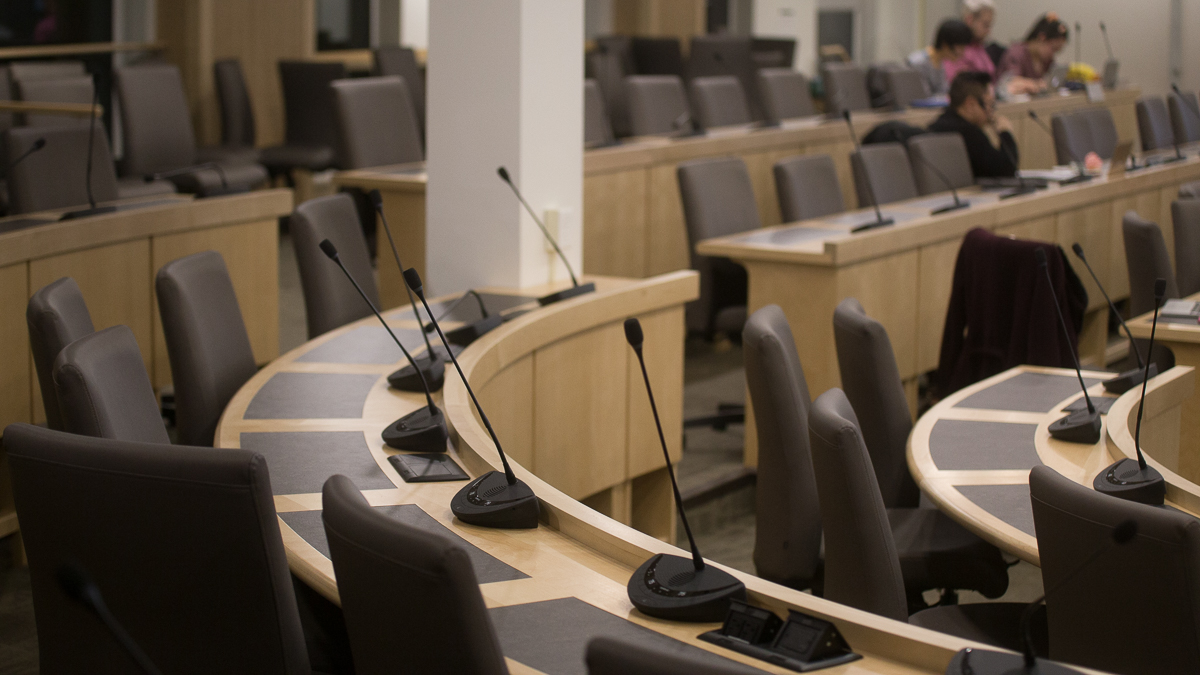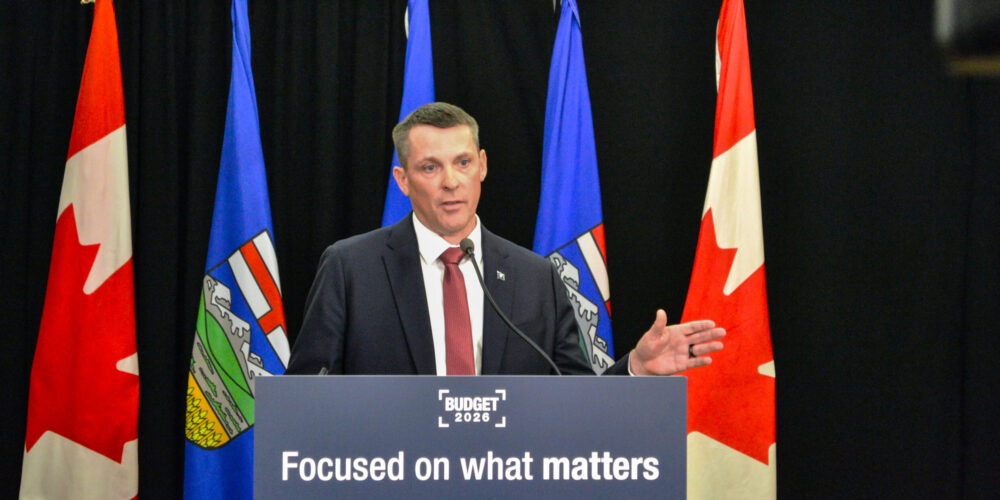GFC to recommend BoG approval of People Strategy
UASU and GSA Presidents also presented their goals for the upcoming year.
 Rosty Soroka
Rosty SorokaAt the University of Alberta’s General Faculties Council (GFC) meeting on September 23, the motion to recommend that the Board of Governors (BoG) approve the People Strategy was passed.
U of A Students’ Union (UASU) President Lisa Glock also presented on the UASU’s goals for the upcoming year. Additionally, Graduate Students’ Association (GSA) President Haseeb Arshad presented the GSA GEAR Strategic Work Plan.
The People Strategy will help create an environment where U of A staff can “thrive,” Yiu says
Todd Gilchrist, vice-president (university services, operations and finance) and Verna Yiu, provost and vice-president (academic) presented the People Strategy. The strategy is in alignment with SHAPE, the U of A’s 10-year strategic plan, Yiu said.
“We are a people organization, and we can’t really go ahead with SHAPE if we don’t have the type of environment where our people can thrive. The People Strategy is about creating and supporting that environment,” Yiu said.
Its major themes include creating connection, prioritizing health and well-being, enabling and empowering people, and outstanding leadership in an environment of shared responsibility, according to the presentation abstract.
Gordan Swaters, president of the Association of Academic Staff of the U of A (AASUA) raised concern with how the strategy addresses its goal of retaining top talent.
“The People Strategy should acknowledge that it should be an aspirational goal to return compensation for academic staff back to the top quartile of the U15,” Swaters said. “We have to address this issue in order to recruit and retain top academic talent at this institution.” The U15 is an association of 15 leading public research universities in Canada, of which the U of A is a member.
“I would encourage GFC to look at this [strategy] in the context of what it does include, not what it doesn’t include,” Gilchrist said in response to Swaters.
Jonathan White, faculty of medicine and dentistry GFC representative, asked about the strategy’s “organizational resilience” in relation to government leadership changes.
“What helps reinforce organizational resilience is ensuring that you’ve got the actions as well as the targets and the deliverables over the next three years so that we’re staying on track,” Yiu said. “That’s why it’s really important to have those metrics out there to hold ourselves accountable.”
UASU and GSA presidents present goals and work plan for upcoming year
UASU President Glock presented on the UASU executive goals for the year. She emphasized accessibility, sustainability, improving connectivity between campuses, and affordability for students.
“Expanding the Zero Textbook Cost (ZTC) program is always a focus for us,” Glock said.
“We’re also continuing to support the Campus Food Bank (CFB) through media, financial, and advocacy efforts,” Glock added. “We’ve seen an over 50 per cent increase in food bank usage over the last year. I think that’s about a 500 per cent increase in the last six years.”
Asha Jama, GFC representative for the faculty of nursing, asked Glock about her strategies for increasing involvement from students from different backgrounds in UASU elections.
Glock mentioned the UASU Elections Task Force and the Stride Campaign School. Stride is “an initiative from the [UASU] to foster involvement from gender minorities,” she said.
Additionally, GSA President Arshad presented the GSA’s GEAR Strategic Work Plan. The presentation focused on themes of growth, engagement, and advocacy.
The GSA is launching a hybrid scholarship of $2,500. According to Arshad, this scholarship will support around 80 students. The GSA is also aiming to improve childcare services, launch a graduate peer support program, and advocate for PhD minimum funding. Currently, PhD students beginning their degrees in fall 2025 are guaranteed minimum funding of $25,000 every year for four years. The GSA has previously stated that this amount is insufficient.
Additionally, Arshad spoke about supporting the CFB.
“We have increased our support to the CFB from $27,000 to almost $71,000 for this year,” Arshad added. “We’ve been trying to apply for different grants to see how we can further support the CFB.”




